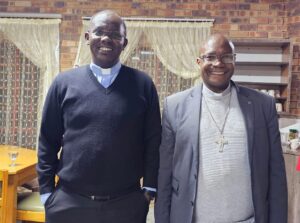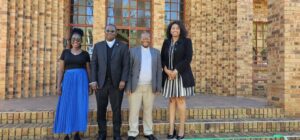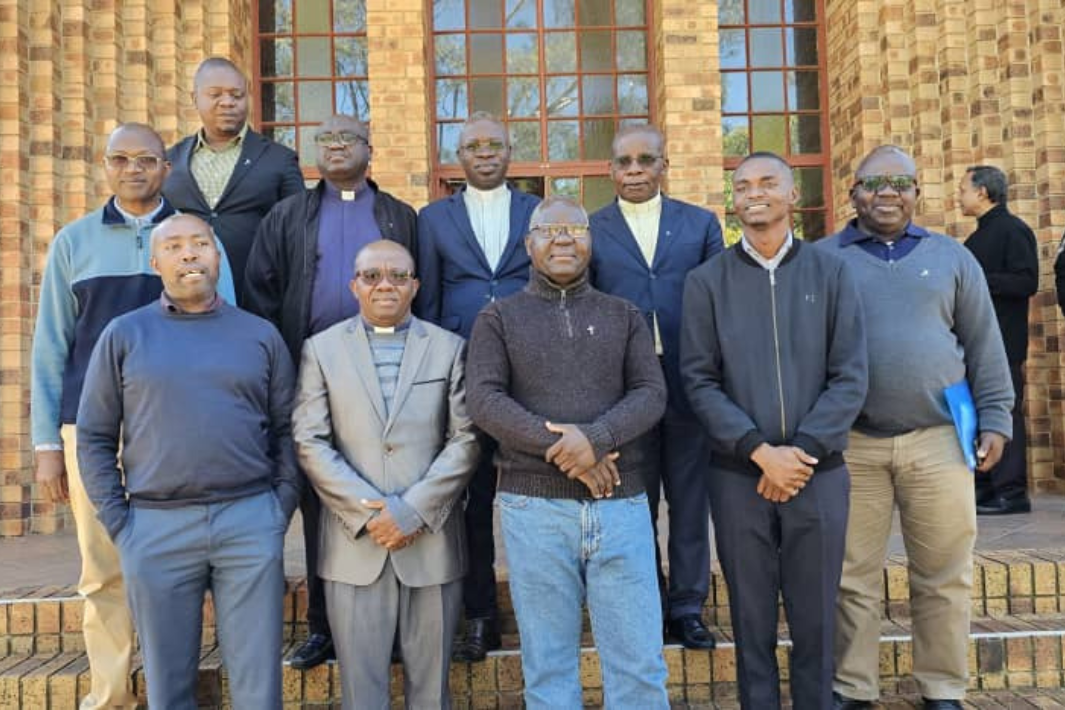By Paschal Norbert
PRETORIA, APRIL 16, 2024 (CISA) – After an enlightening three-day workshop convened by the Inter-Regional Meeting of Bishops of Southern Africa (IMBISA) in collaboration with the African Synodality Initiative (ASI), rectors of major seminaries in the IMBISA region recommended the inclusion of women in the formation of priests and restructuring of the seminaries’ curriculum to include courses on Synodality.
Under the theme “Synodality and Spiritual Conversation in Seminaries,” the rectors and participants in the formation workshop on the spirit and practice of Synodality were trained on the tenets of spiritual conversations and what it means to be a Synodal leader: understanding the meaning, practice and significance of synodality in priestly formation; and pastoral synodal leadership.

The participants averred that the spiritual conversation process as presented by Fr Marcel Uwineza SJ, the Principal of Hekima University College, a Jesuit School of Theology and Peace Studies in Kenya, was an illuminating aspect of listening to one another and acknowledging the spirit of God working in each person.
“There are two fundamental attitudes here: active listening and the conversation of the heart. The goal of the conversation is to create an atmosphere where everyone can speak without fear and be listened to without prejudices. Synodality is the life of the Church,” the rectors noted.
In the presentations on understanding the significance of synodality in priestly formation spearheaded by Ms Sheila Pires, a delegate at the ongoing Synod on Synodality, and Fr Marcel, the participants recognized that the approach of a Synodal leader that the Church demands from them is primarily participative rather than directive. A leader that encourages greater participation and communion among all members of the Church through dialogue.
“On pastoral synodal leadership, we have learnt that leadership is the capacity to make a difference in our lives and in that of others. The role of a leader is very important to help the group to be effective. A leader must have the courage to decide but this must be done after consulting all the stakeholders,” they said, adding “We have realised that the leader must take inclusive decisions that can be far and broad, not only including the formation staff but even the outsiders. The leader must be accountable and responsible.”
The participants acknowledged the significance of studying the changing nature of the Catholic Church as explored by Bishop Masilo John Selemela, the Auxiliary Bishop of the Metropolitan Archdiocese of Pretoria, South Africa, and former rector of the National Major Seminary of St. John Vianney, in his presentation on the value of collegial bodies in the Church.

They acclaimed, “The church that lives the spirituality of communion. This communion can be visible and concrete only when we realise that the local church is in the universal church and the universal church is in the local church. This communion is a reflection of the Persons of the Trinity who exist in communion. We cannot speak of the local and universal church while ignoring the collegial bodies because these also contribute towards the ecclesial communion.”
At the end of the workshop, the rectors agreed to form networks among themselves and in various dioceses in order to have uniform formation as a region.
The workshop held from April 8 to 10, 2024, at St. Padre Pio Centre in Pretoria, South Africa, also included the participation of bishops, priests, and laypeople. It is the second meeting organized by ASI in collaboration with the Church’s regional bodies in Africa on the Synodality and formation of priests.

